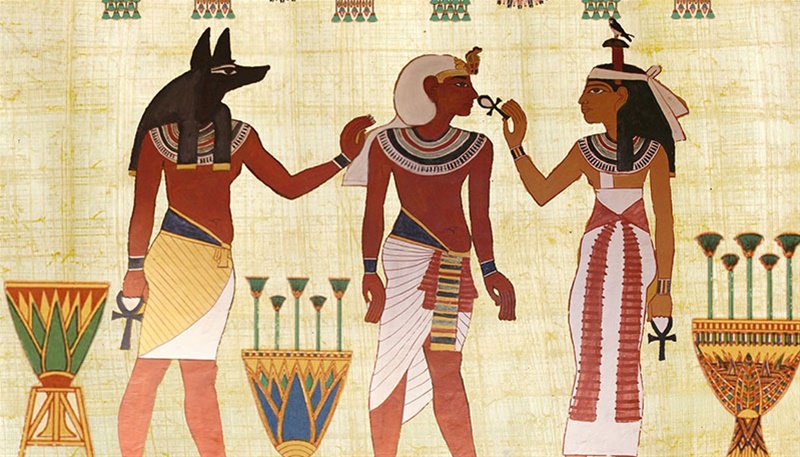The word perfume means a pleasant, refined smell, which is the fragrance of plants, and is rooted in the words per-(through) and fume-(smoke). From ancient times to today, all cultures have loved perfume, it remains one of the first beauty choices for both women and men. The art of perfume making began in ancient Mesopotamia and Egypt and was further refined by the Romans and Persians.
The Egyptians were the first to use aromatic substances. In particular, when they opened Tutankhamen’s tomb, an intoxicating smell filled the area. It was kyphi, a famous perfume that the ancient Egyptians prepared from 16 different ingredients and offered every evening to the god Ra.
In ancient Rome, smells wafted from every temple and house. After all, the Romans invented shaving and after shave. In the aromatic baths, they immersed their bodies in water scented with essential oils and after shaving they massaged their faces with aromatic ointments.
In ancient Greece, perfume was linked to religion. Many texts mention the fragrance that the gods left behind when they appeared. Homer in the Odyssey mentions the practice of anointing the dead with essential oils.
The first form of perfume was frankincense. It was discovered in Mesopotamia 4,000 years ago. The world’s first recorded perfumer was a woman named Etruscan. The concept and meaning of perfume developed differently around the world so there were many types of perfume before the modern era.
The modern history of perfume focuses mainly on France, since the most valuable medicinal herbs and perfumes of the time are found in the French South. There, the technique of extracting “pure” perfume was developed, by distillation with steam or with alcohol. Nevertheless, the first modern perfumery was not French but British. In particular, the British perfumer Creed opened a perfume house in London in 1760, which was transferred to Paris in 1854. It gradually spread throughout the world, when the perfumes arrived in Paris, their commercial development also began and blossomed into the huge industry as we know it today. At the end of the 19th century, synthetic products appeared.
The Hungarians were the ones who introduced the first perfume to the public, created from essential oils mixed with an alcoholic solution. The first perfume created exclusively for personal use was for Queen Elisabeth of Hungary and became known throughout Europe as Hungarian Water . The aroma was mainly dominated by natural ingredients such as rosemary and thyme.

